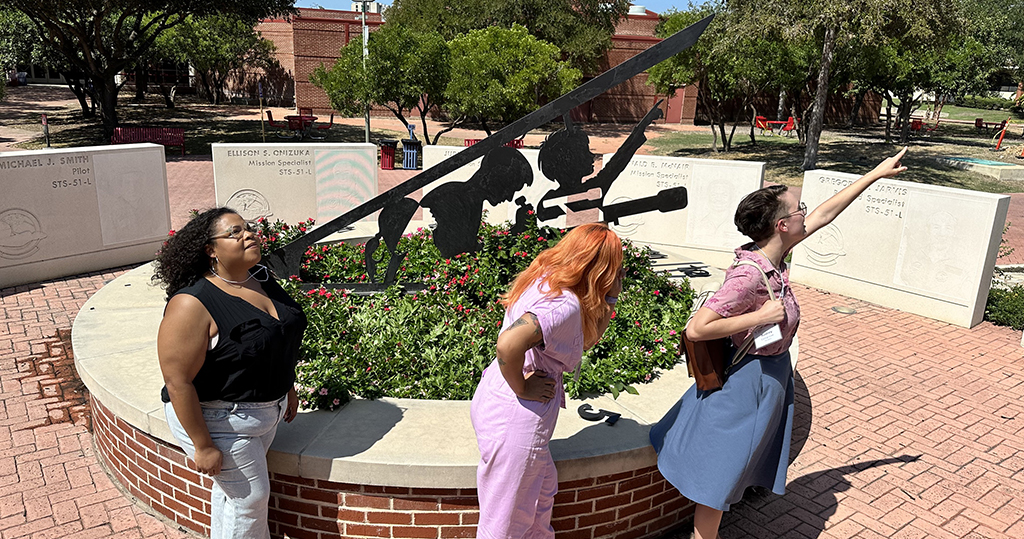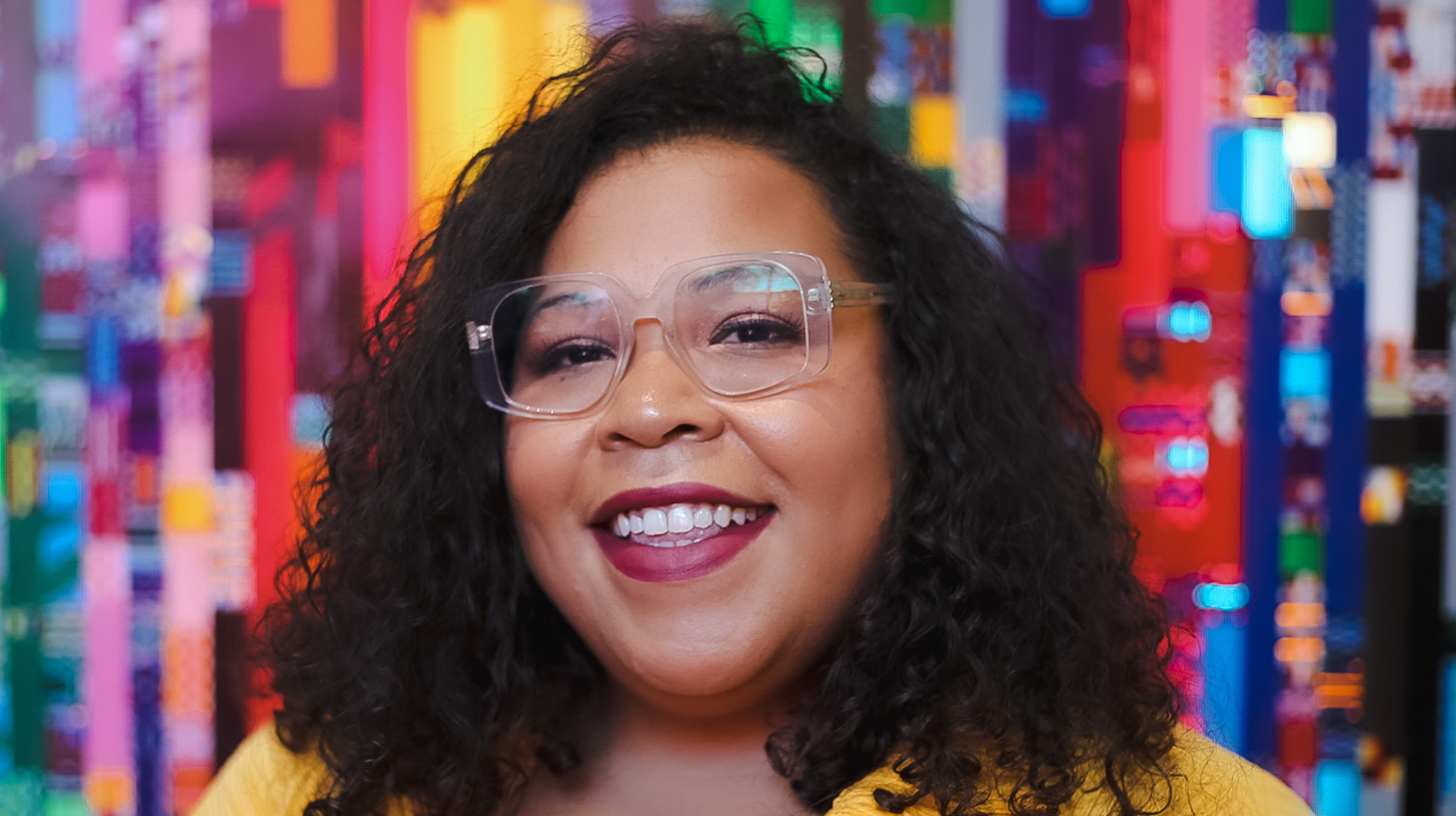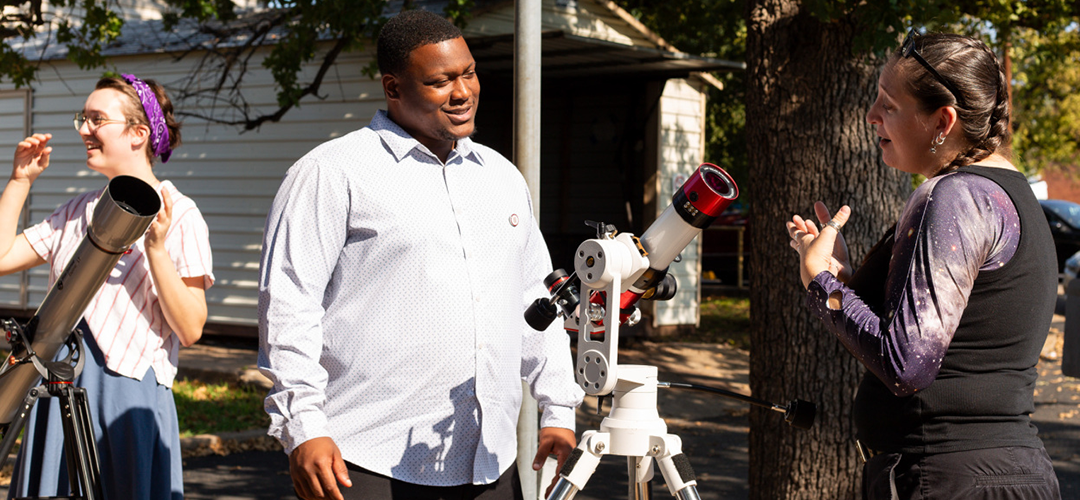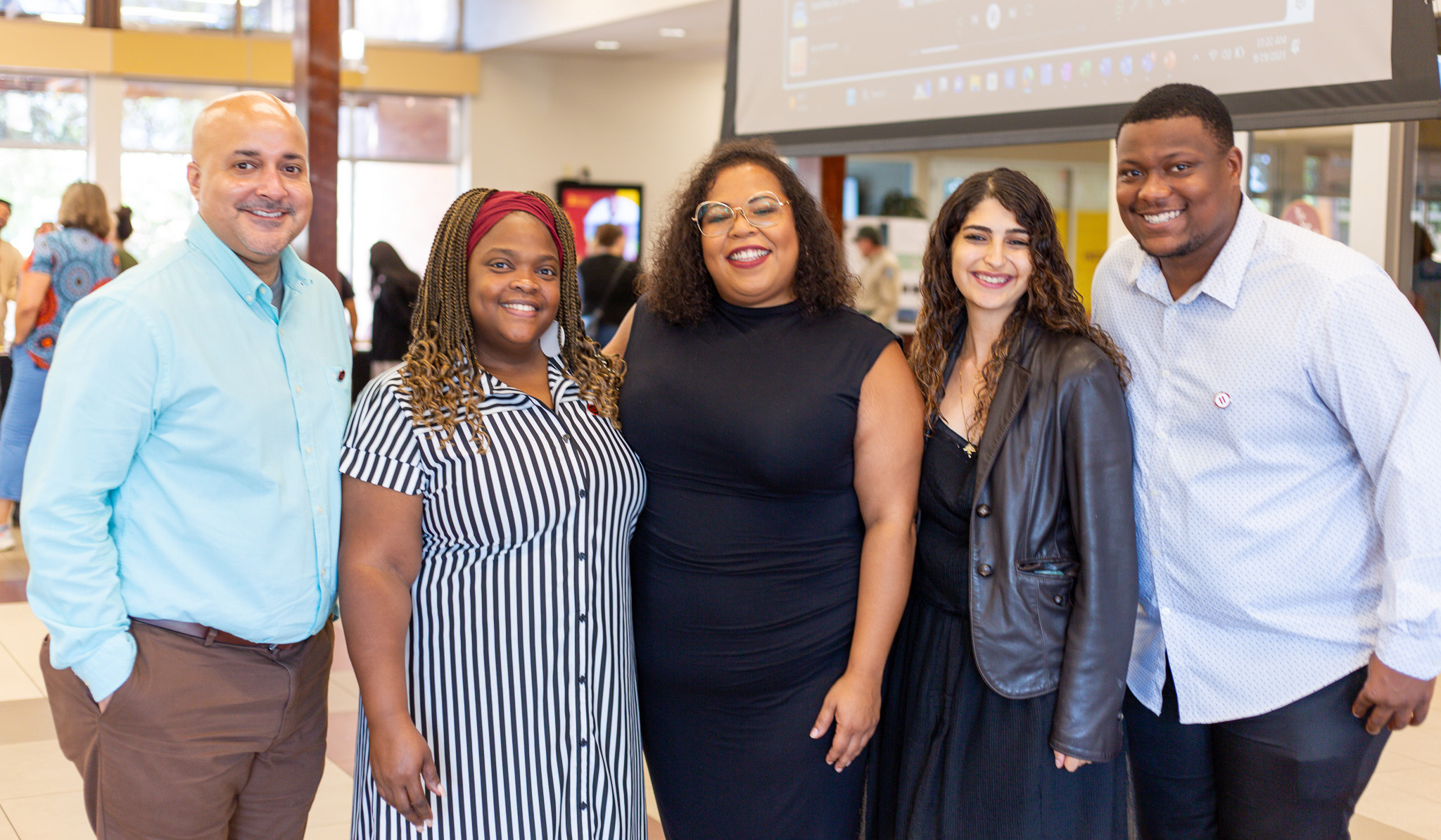
Interview: LeKeisha Harding from Thinkery
From its humble beginnings operating from the back of a station wagon to its current status as a non-profit with a citywide presence and beautiful headquarters, Thinkery has, for over 40 years, brought joyful learning experiences to Austin, Texas. In the leadup to the upcoming total solar eclipse, Thinkery is now helping prepare nearly one million Austin residents to experience it in community with each other. As the director of community relationships for Thinkery, LeKeisha Harding is playing a major role in these efforts. She is at the helm of this work, bringing together dozens of community-based organizations throughout the city and helping them develop events around the eclipse that amplify the voices of the communities they serve.
We recently spoke with LeKeisha about her work. The transcript below has been edited for brevity and clarity.
Thanks for joining us, LeKeisha! I’d love to start with hearing about your favorite memory of the sun.
My favorite memory of the sun is any outdoor experience that is on the water with my family. I’m originally from Seattle, where it’s known to be a rainy city, so moments of sunshine and nicer weather there are great. I imagine driving down I-5 in Seattle, the sun rising above Lake Washington, and you see Mt. Rainier right in front of you. There are so many elements of my life where the sun brings me so much joy, and people are more outgoing when the sun comes out in my hometown.
Tell us a bit more about yourself.
Growing up, math and science were my strongest subjects by far, but no one ever told me that I could pursue a career in STEM. I was always one of the only girls — and definitely the only Black person — in a lot of those spaces, and I think that contributed to what I could or could not do as a career. I ended up going into teaching for almost a decade, working on STEM pedagogy, and community building within STEAM (Science, Technology, Engineering, Art, Math) as a focus. I then became a consultant for a few years at the intersection of STEM, Social Emotional Learning and what I now call cultural fluency (instead of diversity, equity, inclusion, access and accessibility). I actually started at Thinkery as a consultant, fell in love with the work, got hired full time and now I’m the director of community relationships there.
I’ve always done a lot of community work, and a lot of education advocacy work, especially in marginalized communities. I believe that my most successful moments have been when I am in relationships and doing things with other people, and so that centers my practice and how I approach things.

What’s the story behind Thinkery and what role does Thinkery play in Texas?
This year marks 40 years of bringing joyful learning experiences to Austin. In 1983, the museum started off without walls on the back of a station wagon, and in 1997, Thinkery (which was at that time known as Austin’s Children’s Museum), built a location in downtown Austin. In 2013, the name changed to Thinkery, and we moved into our current building. Now, we no longer call ourselves just a museum. We are a nonprofit organization bringing joy to learning for all children. And just one of the many ways we do that is through our museum. As we look forward to what the organization’s next 40 years look like, “with community” is at the core of that vision. There is nothing we’re doing where we’re not having community voices shape the decisions that we make.
What is Thinkery planning on doing for the eclipse?
Prior to planning for the eclipse, we were already doing things to move towards this “with community” concept and decentralizing our organization, which included launching our Joyful Learning Collaborative (JLC).
This is a group of 25 Joyful Learning Ambassador organizations spread throughout Austin. In year one, we imagine centering the collaborative on the eclipse. We’re going to have five different sessions at different partner locations, and within each session, we will host panels that answer questions like: How do you plan to bring joy to place and space for the total solar eclipse event? What are the barriers in terms of inclusion to place and space that Austin has historically seen? And how can this collaborative help ensure that folks have access to spaces that offer joyful learning? Another topic is going to be culture and science, and how people relate to STEAM. It’s going to elevate topics of ancestral and indigenous knowledge as its own bucket of knowledge. We look forward to learning from one another through storytelling.

How has that outreach been going?
Before outreach can happen, your house must be cleaned internally. Before we go through the work of deciding who our partners are going to be and what communities we want to focus on, we are working internally to make sure that we are looking at things correctly; that when folks come in contact with us, there is a sense of emotional safety when they are in our presence.
That work is helping us find parts of the city that we didn’t invite before in terms of marketing or spreading education and knowledge. With the eclipse planning, it really is going well because we chose to start out with partners that we’ve been in really good standing relationships with. We’re getting a lot of great feedback, but it hasn’t been hard to convince people to partner with us. We’ve taken the approach of, well, now that we have you with us, how can we make sure that you feel good and are valued?
Is there one partnership you’re especially excited about?
One of our partners that I’ve been excited about is an organization called Black Mamas Village. We have heard from some of our community insight teams that when kids are visiting Thinkery, they’re often coming on field trips or with their afterschool programs, not necessarily with their families. That got us thinking about organizations that are family-focused or organized by parents. When I first moved to Austin and was new to the city, I needed a community. I had been attending some social events hosted by Black Mamas Village and I remember thinking, “Wow, this is great. You’d be great at Thinkery.” So, we’ve been partnering with them on events like Back to School Bashes and Community Spotlight Nights. We’re also finding new ways to use our museum space, maybe in ways that we didn’t before. We’re building this trust with our community and are responding to what they’re asking us for in terms of how they need to use our museum. It’s also a proof of concept — If you tap into people, they will show up.

What are the next couple of months looking like for you all?
The next couple of months are really about getting our Joyful Learning Collaborative off the ground. Our launch event happened in September. Since then, it’s been all about the prep work, such as getting our presenters in line and zeroing in on all of our locations. I was so excited for the launch, and that we centered JLC members and community voices as a means of learning. I’m excited to hear about and share all of the stories coming out of the collaborative sessions and eclipse events.
What are some of those activations going to look like on April 8?
At Thinkery, we are allowing our museum experience assistants, our museum experience leads and our teachers to have first dibs on which Thinkery events they want to attend. We want staff to interact with local organizations that are part of the Joyful Learning Collaborative that most interest them. We imagine day-of events will be filled with a party or festival vibe, with food and music stations set up alongside all of our activations with things like telescopes, colanders, eclipse models, sundials, books and more. And our activations are designed not only for the day of, but we hope folks use them before and after eclipse day, too.
We also imagine there being a social campaign where people can show what they’re doing together, whether that’s like a hashtag for social media or a time capsule for a future eclipse event. We want the city to see what we’re all doing at once and have something to remember the day. I’m excited about the idea that thousands of people are experiencing the same thing. That’s just kind of inspiring given what we’re going through right now. It doesn’t feel like there are enough opportunities to connect and be in unity with other communities right now in our society. So having this be a space that provides that connection is exciting.
What’s the aftermath of the eclipse going to look like for Thinkery? What are you looking forward to?
We’re so excited because the Joyful Learning Collaborative’s last session takes place in May 2024. It will be focused on showcasing the work we did for the eclipse, and listening and learning for how we want to move forward. I imagine us taking the rest of 2024 to plan out what the future will be, and then relaunching our next initiative closer to 2025. At that time, I hope that there’s been so much voice and success within the collaborative that we can develop a committee of connectors, where we can work together to develop what our programming will look like long term. We’re looking forward to listening, learning and co-planning with our community, and I want to give a big thank you to the JLC taskforce for all their hard work in bringing our community together.

What advice do you have for people who are doing similar work around the eclipse?
Try to decenter yourself. And what I mean by that is you may have a ton of science-based eclipse resources, and you want to come into communities and share your knowledge from your perspective. It is great to share knowledge, but it’s just that — sharing knowledge. So just as much as you want to share, be open to receiving knowledge as well, especially when you’re bringing in communities that are resisting marginalization and continued harm. A lot of our cultural institutions, museums, science centers and things are largely white, and although the work is happening, sometimes I think it’s done with assumption and not actually asking a community what they want. I think that there are fears of saying the wrong thing, doing the wrong thing, coming off prejudicial or whatever the case may be, but I think having a willingness to move through that discomfort is important. Be willing to make mistakes and also articulate that to the community you desire to be in relationship with. You can tell them: “We may fail, but we’re going to do this together.”
What are you, personally, planning on doing during the day of the eclipse?
I experienced the 2017 eclipse when I lived in Nashville, so I’ve been through an eclipse experience. At the time I was a teacher, so we got a bunch of resources, and glasses, but never hosted a viewing event. But now I’m in the citywide planning space, so it’s very exciting. I will 100 percent be with my children. One of our JLC members is partnering with my children’s school to host a viewing party joy, learning, and community connection. At the time of the 2017 eclipse, I was pregnant with my oldest, so he’s also, in a sense, experienced the eclipse from an energy kind of perspective. But we are a huge STEAM learning family. My youngest loves nature and tinkering, my oldest loves coding and tech, and so it’s kind of like this merger of all the things that my family and I enjoy.
Thanks, LeKeisha!
This profile is part of our Stories from the Path series, where we highlight the people working in their communities to prepare for the 2024 total solar eclipse.